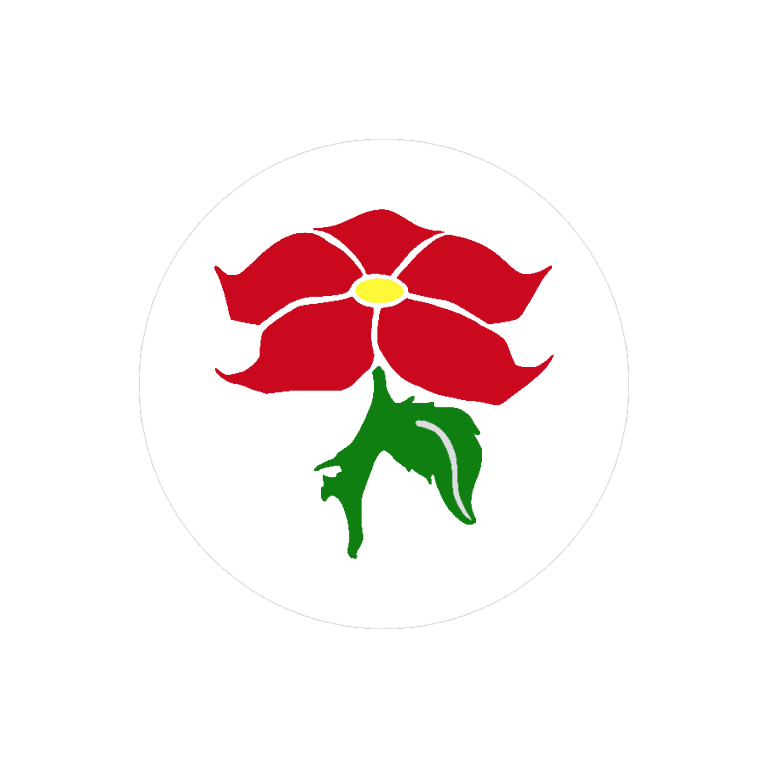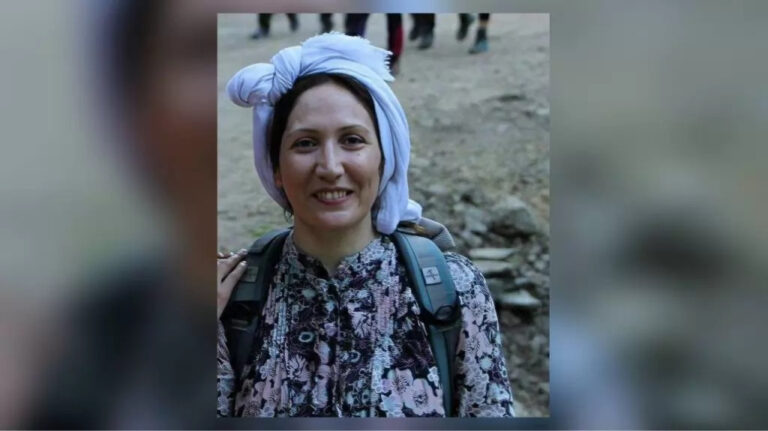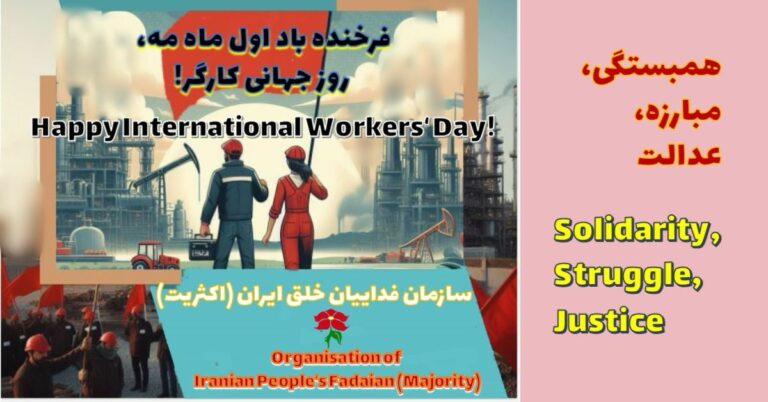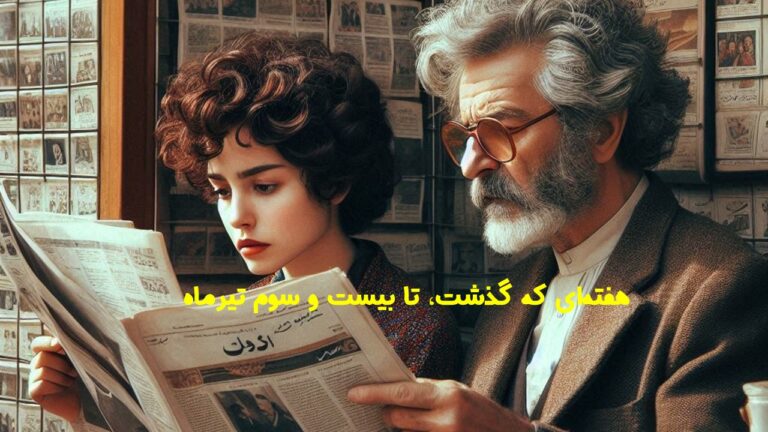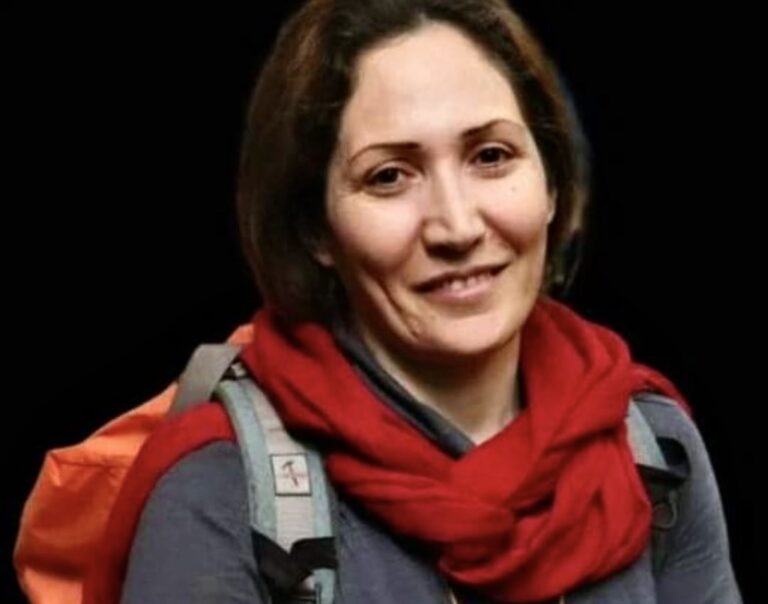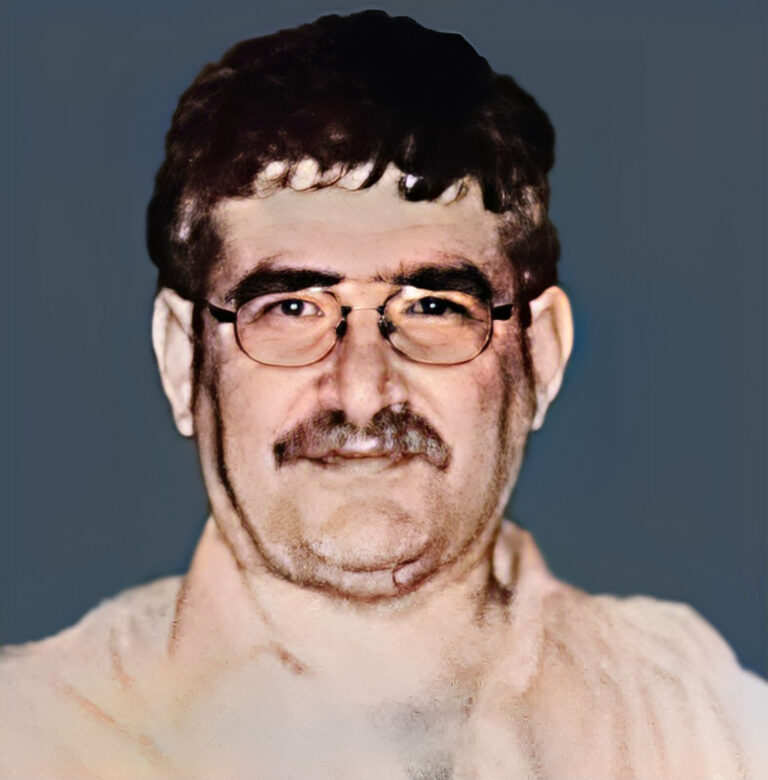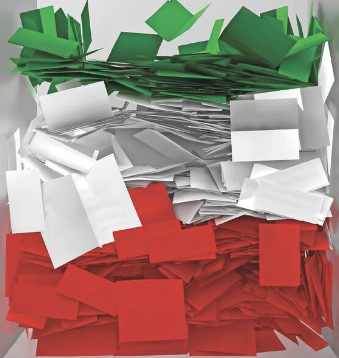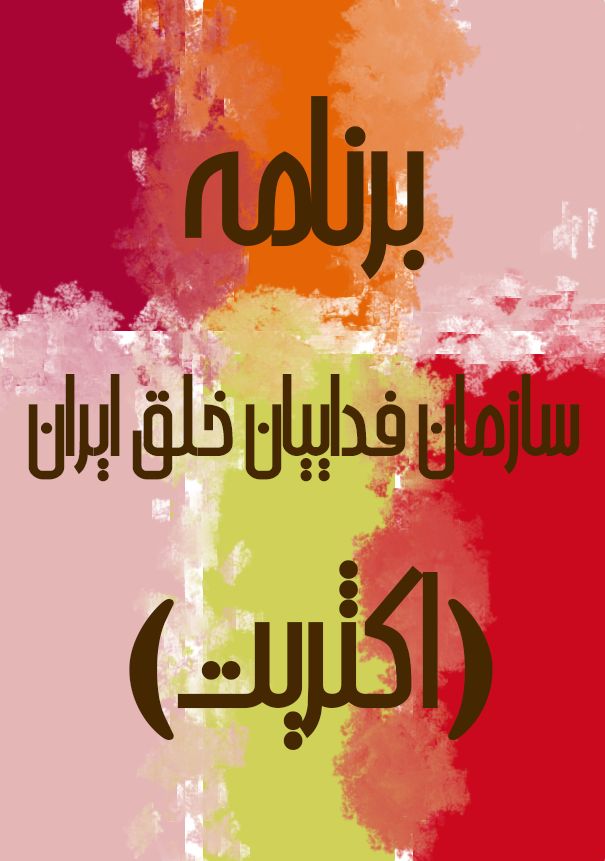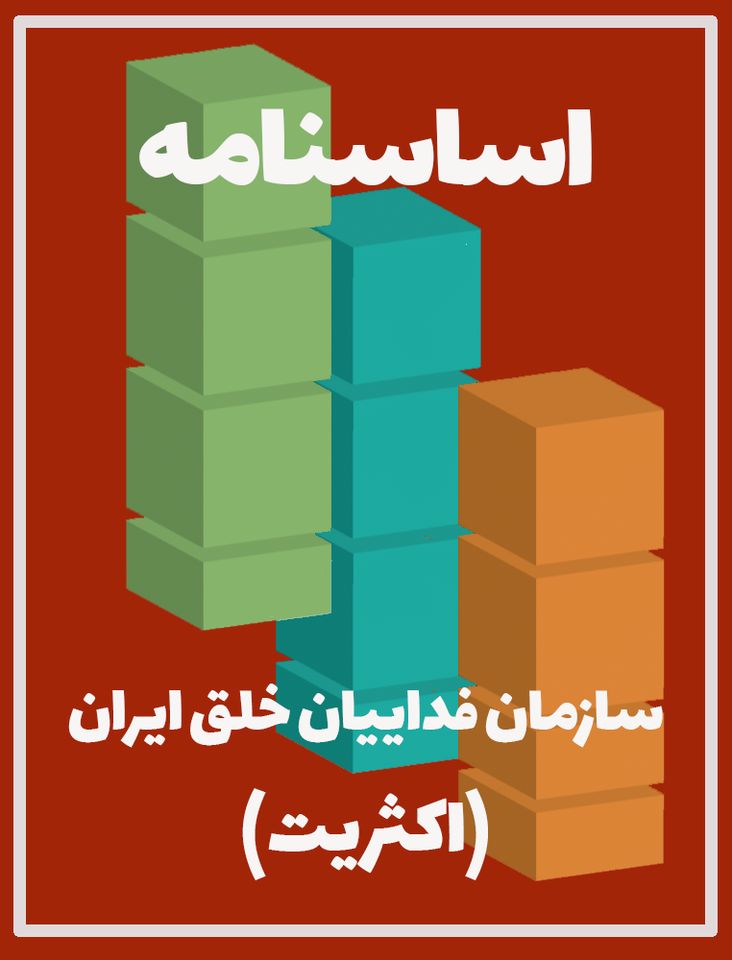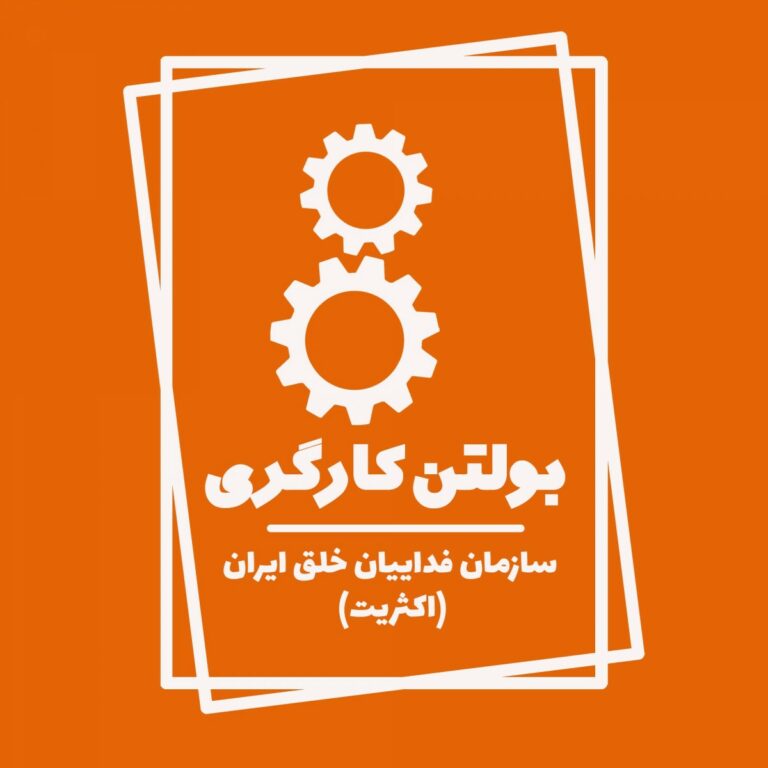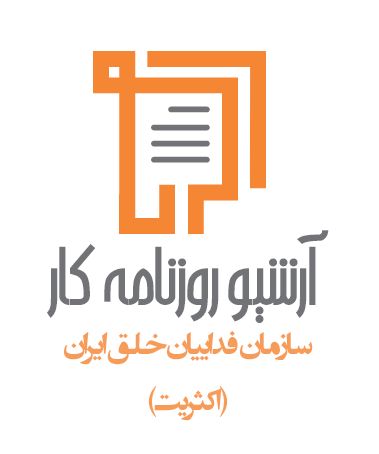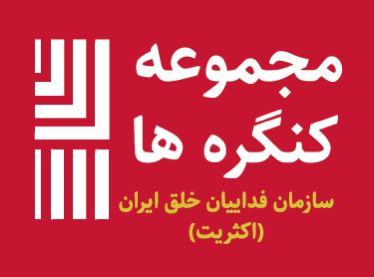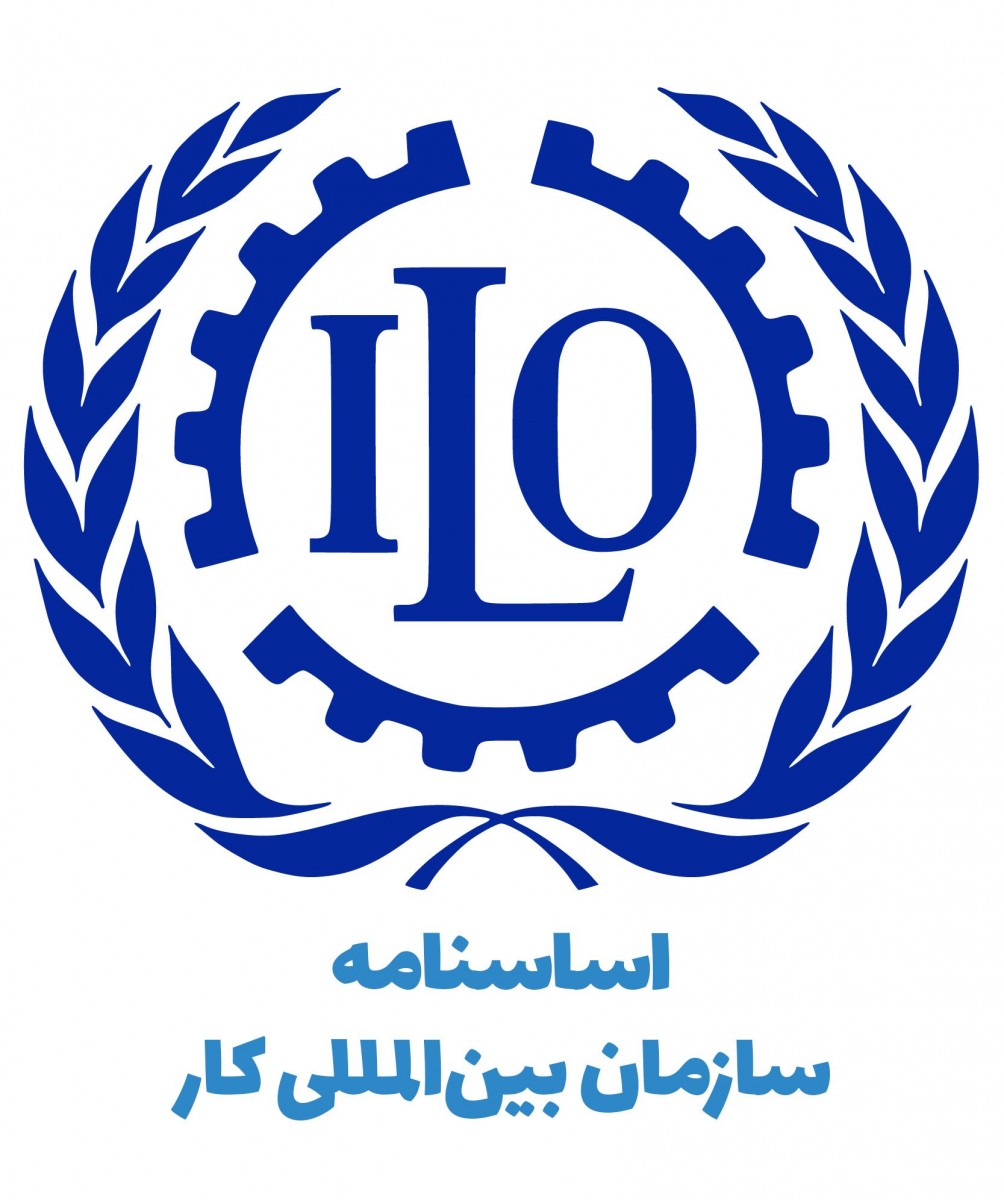
A Glance at the History of the Establishment 1971
Preface
Following the 1953 coup d’etat (1953) and the fall of premier Dr. Mossadeq’s national and democratic government, policy of repression and murder of Iranian freedom-fighters and
strangulation was imposed by Mohammad Reza Shah’s regime. By targeting the two main political organizations that accommodated the majority of Iranian freedom fighters, the Tudeh Party of Iran, and the National Front of Iran, the Shah’s repressive policy succeeded in putting in rout Iran’s organized opposition. However, by the early 1970s whispers of opposition were heard again against Shah’s dictatorship and intellectual circles became centers of political activity. But political moves of this short period declined quickly due to the lack of a powerful leadership in the democratic opposition. After implementing a series of reform, Shah implemented brutal repressive policy against the opponents and was able to take control and rule the country with an autocratic policy until the Bahman Revolution (February 1979). From the late 50’s and early 60’s new generation who was pro independence, freedom and sovereignty of the people, progress, social justice, and socialism in the country entered the political arena and the critique of the political failure of democratic forces within the last two decades and search for new solution became the agenda for the fresh opposition. This process coincided with the ever-increasing student oppositions in the Europe and changes in the Latin America. At this stage, Iranian youths, particularly students found a strong affinity towards the liberation movements and a revolution which was going on in different countries, particularly in Cuba and Vietnam in 1950’s and 1960’s. Since that movement was lacking leadership and there was not a reliable party or organization in the political arena, the struggles of intellectual circles focused on filling that political vacuum. Due to this fact, the idea of armed struggle against Shah’s dictatorship was recognized as the only path to freedom among revolutionary left groups and circles.
From the Establishment to the February 1979 Revolution
The first organized steps and practical measures in revolutionary left armed movement were taken by Bijan Jazani and his comrades in early 1960’s. By attacking a Gendarmerie post in northern Iran Jangles on February 8th, 1971, the aggregated struggles of revolutionary left groups with tendency towards armed struggle led to action and shortly after, the Organization of the Iranian People’s Fedaian Guerrillas was formed by two main groups of the armed movement (remainders of Jazani-Zarify group and Pouyan, Ahmadzade-Meftahi).
During eight years, form 1971 to 1979, the Fadaian came under intensive attacks and their victims exceeded those of any other opposition organization. Within these years over three
hundreds of People’s Fedaian were murdered by the Shah’s regime. During this period, in the course of four deadly strikes, the majority of the Organization leaders were arrested or murdered.
Nevertheless, the Organization survived.
One of the deadliest strikes happened on April 19th, 1975, where Bijan Jazani and six of his comrades were murdered secretively in the regime prison. This event happened after being in prisons of Shah for eight years without any second trial. Fedaian played an effective and active role in February 1979 revolution whose leadership fell under control of Ayatollah Khomeini. At that time, majority of forces who were against a theocratic state supported Fedaian. Fedaian were recognized as a reliable and independent left force by the society.
From the Revolution to the Repression Period
Following the revolution, the Organization public offices were established in most Iranian cities. Later those centers developed into gathering places for the egalitarian secular and pro-justice Iranian youth. In the first election after the revolution, Fedaian received 10% of the votes. During this period, Fedaian as radical and left opposition of the theocratic regime attained the total leadership or participated in the leadership of worker, peasant, and national movements and protest movement against the newly established regime repression policies. In the meantime, internal discussions on the issues of revolution and regime’s nature were under way amongst Fedaian which resulted in several break ups in the Organization. Means and Methods of struggle and policies towards the new government were the top issues. Majority of the organization members did not believe in armed struggle any more and at the new political atmosphere recognized the Islamic Republic as an anti-Imperialism state. That majority chose to pace with the people – masses who were widely the followers of their religious leaders. These differences caused the separation of the minority of the Organization from the Majority.
On May 1st, 1981 one hundred thousands of the Fedaian supporters gathered in Azadi (Freedom) Square in Tehran. On that day the leadership announced the Organization new policies. Among others, it was announced that the Organization was no longer a guerrilla movement and it was a political organization of the Iranian working class. Since then the Organization was formally called the Organisation of Iranian People’s Fedaian – Majority (OIPFM). Since then the Organization chose “unity-critique” policy towards the Islamic Republic. Up to early 1980’s, while the Islamic government was not yet well established, the Organization was conducting its semipublic activities. KAR, the official newspaper of the Organization, had a circulation of 100 thousand to 300 thousand. In the course of four years of hard work to build the skeleton of the Organization, the number of members reached twenty thousands, of which women were one third, workers one fifth, and students three fifth. A significant number of the artists and intellectuals supported our organization. Organizing a significant number of progressive secular youth into a secular political organization in an intensely religious society, assisting in unionizing workers and toilers, and growing to a national and political organization were the outstanding achievements of the OPIFM.
Years of Repression
Despite OIPFM’s policies of trying not to position itself in direct conflict with the government, it was clear that the ruling fundamentalists could not tolerate the Organization “unity-critique” policy, Fedaian’s activities, and their existence. During the period of 1981-83, OIPFM was principally supportive of the Islamic governments policies in various aspects, such as conflict with Iraq, anti- American positions, and certain aspects of economic reforms; however it was not legally permitted to pursue its activities. In those years, several death sentences were given to Fedaian and hundreds of their activists were imprisoned. The overwhelming prosecution and oppression of OIPFM began from the spring of 1983; at the
time that regime completed its intelligence structures and policing networks. Islamic Regime did not succeed to destroy a large portion of the Organization leadership. The leadership was able to locate itself abroad on time. Before his death, Ayatollah Khomeini issued mass killing of political prisoners in 1988. Thousands of political opponents, including more than one hundred of Fedaian were murdered in captivity without trial. This horrendous crime was called “The National Tragedy”. During the Islamic Republic ruling, several thousands of Fedaian were arrested, hundreds, including eight members of the leadership, were executed, and thousands were forced to flee the country.
Years of Crisis
Over the period of 80s, by deliberating acts and character of the regime emerged from the Iranian revolution, having a more realistic understanding of socialism in the Soviet Union, and being affected by the international changes, a deep ideological, political, and organizational crisis was invoked throughout OIPFM. The cores of the discussions were false picture of the Islamic Republic and the “existing socialism” and the non-democratic structure of the Organization. Although this crisis had a destructive effect on the Organization life, at the same time it paved the road to deep changes in views, policies, and internal relations within the Organization. The main content of the changes was Organization’s fundamental tendency to democracy and democratization of its internal and external acts. The right of all members to publicly express their independent and personal views was recognized. This transformation, which was a major step towards restructuring the OIPFM, paved the road to the First Congress.
The Nineties Decade
In August 1990 the First Congress of the OIPFM took place outside the country. The congress mainly focused on re-examining Organization’s past policies, political situation, and internal relations. Being critical of current leadership’s past positions, the Congress transferred the leadership to a new group and decided to summon the Second Congress within a one-year period. The outcomes of the Congress secured the unity of the OIPFM with recognition of the differences in views and mutual trust and solidarity among the Organization activists. The 1990s brought about profound changes in the Organization views and policies. In this decade, the Organization declared democracy as its urgent and fundamental goal and emphasized on relation between democracy and social justice. Diversity in views and political differences were officially recognized and supported. The first congress rejected those policies which guided us to overwhelmingly support the Islamic Republic and concluded that those policies damaged the morale of independent left in the Organization and were harmful to OIPFM and the whole Iranian democratic and progressive movement. The Congress emphasized on socialism as the ultimate goal of the OIPFM. The Congress decided to summon the future Congresses every other year.
Since then, the Organization congresses have been summoned every other year, policies and views have been discussed and approved, political situation of the country has been discussed and assessed and appropriate policies between two congresses have been decided. The discussion of unity was the core of discussions during the tenth Congress, which was held in February 2007. The tenth Congress emphasized on close relationship amongst republican, democrat, and secular forces and their widespread unity towards building an alternative to the Islamic republic.
Towards a Better Future
Fundamentalism is still in power in Iran. However, the majority of the people are not satisfied with the current regime. In 1979 revolution, Iranians’ goal was toppling the dictatorship regime and ending corruption and injustice. The Islamic Republic of Iran, however, did not fulfill those demands. Instead, it made routine harsh discrimination against the non-Shiite and non-religious citizens, and oppression against the opponents and imposition of harassment and humiliation against women were legalized.
Under the governance of the Islamic Republic, the gap between poor and rich has been widened and country’s social and economic resources, particularly by causing migration of millions of educated people have been damaged. National sovereignty is at risk and regime’s adventurous foreign policies have caused isolation of the country. We, Fadaian, as an Iranian secular organization with a history, are struggling for replacing the current theocratic regime with a parliamentary and democratic republic. We are fighting for peaceful transition from a religious dictatorship to democracy and for a governing system freely elected by the people. The people of Iran are supportive of these goals. To achieve these goals, we, Fadaian will rely on modern, democratic, and socialist values. We defend freedom, democracy, social justice, and equality between women and men’s rights. We
defend workers and toilers’ interests. We, as defenders of peace, are against war and any kind of fundamentalism and consider them as nuisance to the world. We are for that kind of world that will be built based on international cooperation of peaceful coexistence between diverse nations and cultures. We are against the United States’ hegemonic policy in the Middle East. We support peaceful solution to the Arab-Israeli conflict and recognition of Israeli and Palestinian states. We are concerned about the future of our planet. We are allied with those who seek a secure, non-discriminative, united and just, free and democratic world and demand a safe planet.
We are critical of the current globalization process. We believe in that kind of globalization process that allows international citizens freely and actively participate in economic, vocational, and production, political, and social decision making processes. If we struggle unitedly we can have a better world.
International Departmen
September 2007

